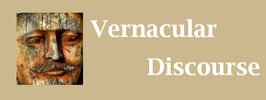|
Euphemism
|
to use more socially favourable expressions instead of more plain-spoken or socially unacceptable ones; a common discursive strategy of politeness, and an ideological practice of concealing plain truth; from the Greek eu 'good, well' and pheme 'speaking'; the opposite of dysphemism
|
|
Dysphemism
|
to use disfavourable, plain-spoken or socially taboo expressions instead of more socially acceptable ones; a discursive strategy of plain or offensive speaking; from the Greek dys- 'bad, unfavourable' and pheme 'speaking'; the opposite of euphemism; also called tapinosis
|
Examples
|
heavy
making love put to sleep passed away lady of the night the adult entertainment industry |
fat
fucking euthanize died prostitute the pornography business |
|
downsizing
accounting errors under-performing assets |
firing people
fraud debts |
|
I misspoke
economical with the truth the economically disadvantaged enhanced interrogation techniques |
You lied
lies poor people torture |
Purpose
As political strategies, euphemism minimizes social embarrassment, usually to protect the speaker rather than the audience. The protection hides unpleasant truths in inoffensive and ambiguous words. Dysphemism deliberately embarrasses speakers of euphemisms and may castigate their conduct.
Euphemism and dysphemism are modern names for figures that amplify and depreciate. They share similarities with auxesis, hyperbole and litotes.
Usage
We must also consider social contexts - politeness requirements, the relationship between speaker and audience, the acceptability or otherwise of plain speaking - when using euphemism or dysphemism.
Language is always ideological. And ideology begins with naming or labeling things. As politeness strategies, euphemism and dysphemism tussle like tug-of-war teams.
|
Euphemism
(less offensive, more figurative) poo jolly bottom restroom self-pleasure between jobs |
Orthophemism
(more formal & objective) faeces/stool inebriated buttocks toilet masturbation unemployed |
Dysphemism
(more offensive, less figurative) shit pissed ass crapper wanking on benefits |
Bertie: What sort of chap is he?
Jeeves: A somewhat curious character, sir. Since retiring from business he has become a great recluse, and now devotes himself almost entirely to the pleasures of the table. (euphemism)
Bertie: A greedy hog, you mean? (dyphemism)
Jeeves: I would not perhaps take the liberty of describing him in precisely those terms, sir. He is what is usually called a gourmet. (euphemism – in this context)
Discussing Jeb Bush running for president
Calman: There's probably been too many Bushes in the White House already, which begs the question how many Bushes are too many Bushes in the White House.
Zaltzman: There are three more (Bush) siblings.
Toksvig: All boys, or are there some girls?
Zaltzman: There are some girls.
Toksvig: Are there lady Bushes?
Political language is designed to make lies sound truthful and murder respectable, and to give an appearance of solidity to pure wind.
|
More Euphemistic
friendly fire assisted dying senior citizens regime change climate change collateral damage extreme rendition protective custody ministry of defence inconsistent behaviour |
More Dysphemistic
military incompetence physician-assisted suicide the elderly undeclared war global warming civilian bombings kidnap imprisonment without trial ministry of war hypocrisy |
|
faith
traitor terrorist immigrant I have right to choose. |
credulity
whistle-blower freedom fighter expatriate You're a baby killer. |
